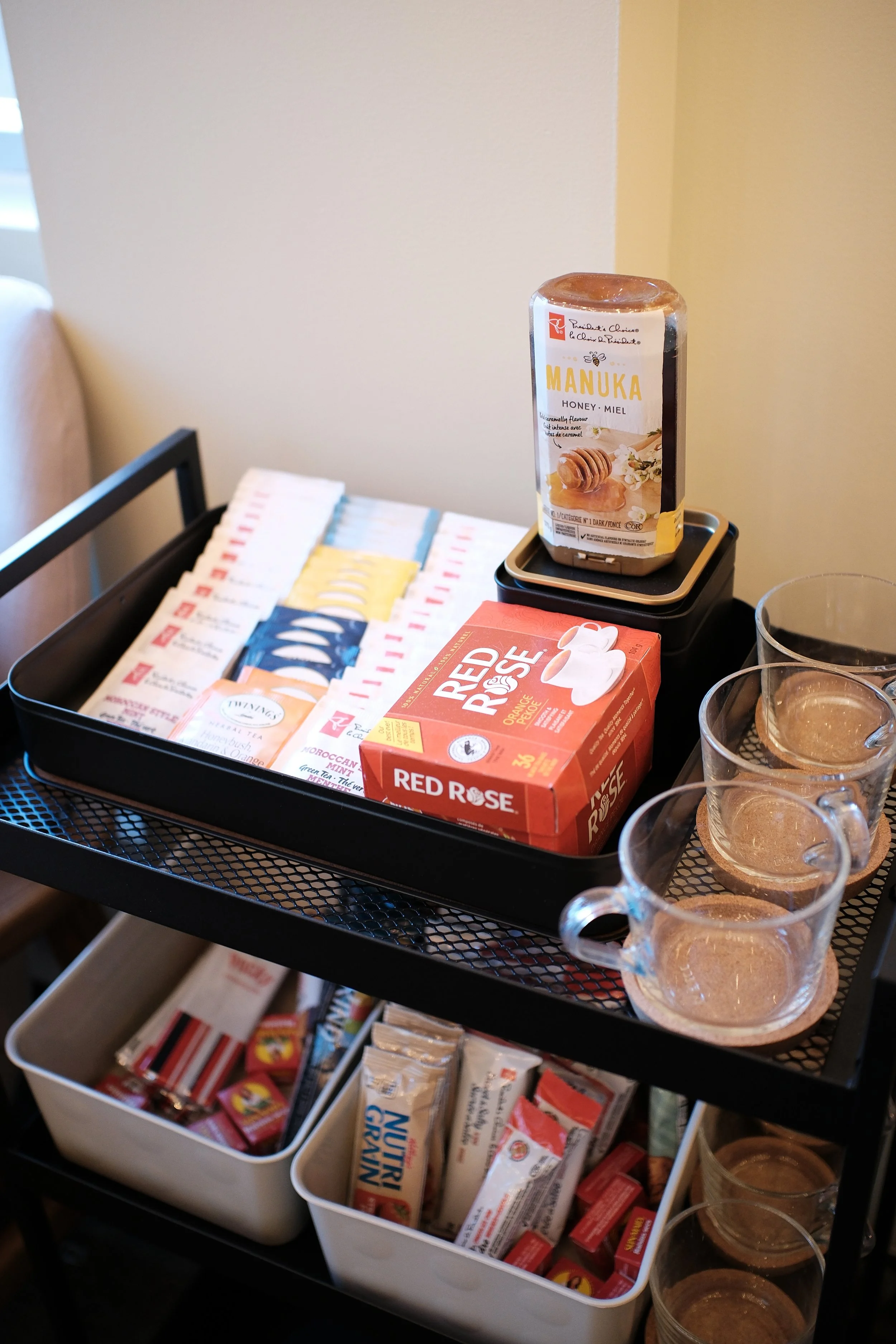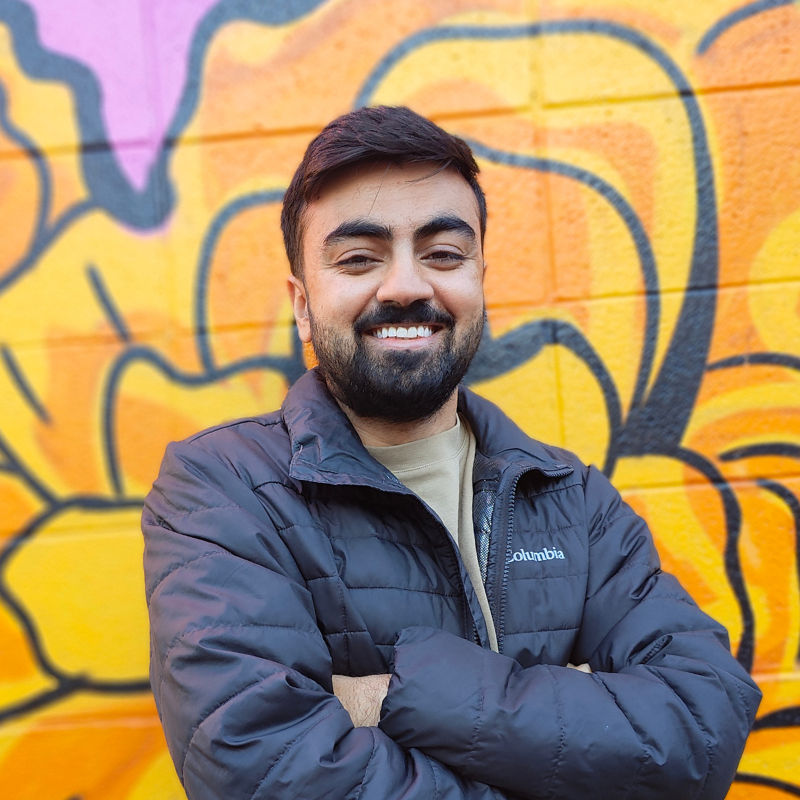The Muslim Chaplaincy Office
@ the University of Alberta
The journey through university—like life itself—is not only intellectual but also spiritual and emotional. The Muslim Chaplaincy Office is here to support that journey by offering a welcoming, compassionate space where students can seek spiritual care, community connection, and personal guidance.
Located next to the Multi-Faith Prayer and Meditation Space (172 HUB Mall), the Muslim Chaplaincy Office is a campus space that recognizes that academic life is deeply enriched when the spiritual needs of individuals are supported.
Our Muslim Chaplaincy team includes Ibrahim Long, Ali Altaf, and Zuhour Mousa, our dedicated Muslim Chaplaincy Intern. Together, they provide a supportive presence for all members of the campus community—whether you're looking for someone to talk to, seeking faith-based guidance, or simply in need of a peaceful place to reflect.
The Muslim Chaplaincy Office at the University of Alberta is a warm, safe environment where Muslim students can feel seen, supported, and spiritually grounded. Whether you're navigating personal challenges, celebrating meaningful milestones, or simply seeking connection, our team is here to support you.

Our Chaplains
As a registered social worker and professionally trained chaplain, Ibrahim brings a wealth of experience in fostering holistic well-being. With a deep understanding of the unique challenges faced by youth, Ibrahim is committed to providing support tailored to your individual needs.
He holds academic degrees in religious studies (BA, MA), a Graduate Certificate in Islamic Chaplaincy (GCIC), a Master's in Social Work (MSW), and has been clinically trained in spiritual care and counselling. In addition to his professional education, Ibrahim studies Islam in a traditional manner with contemporary teachers and scholars.
Ibrahim’s approach is compassionate, nonjudgemental, and rooted in traditional Islamic spirituality and a psychological understanding of well-being, healing, and growth.
Ibrahim J. Long
Muslim Chaplain - University of Alberta
Ali Altaf
Associate Muslim Chaplain - University of Alberta
Meet Ali Altaf 👋🏽 our Green Room Program Lead and Associate Chaplain for the University of Alberta! Ali, a recent graduate with a BA in Psychology from the University of Alberta, has been profoundly shaped by community support. With his psychology background and community service experience, Ali offers compassionate and effective peer support. He believes in the strength of shared experiences and the healing power of listening. Ali is here to provide a listening ear, offer guidance, and help you navigate university life.
Connect with Ali : Tuesday 11 am - 3:00 pm
Zuhour Mousa
Muslim Chaplaincy Intern - University of Alberta
Meet Zuhour Mousa! 👋🏽 Zuhour is a final-year Psychology student at the University of Alberta and serves as a Muslim Chaplaincy Intern. She is passionate about exploring the connection between Islam and psychology, and how faith and mental health can work together to nurture holistic well-being.
Deeply rooted in her community, Zuhour is dedicated to creating spaces where Muslim women feel heard, understood, and valued. Through her studies and outreach, she continues to encourage open conversations around Muslim mental health and spiritual care.
Warm, approachable, and empathetic, Zuhour hopes to make a meaningful difference by supporting others as they navigate their personal and spiritual growth with compassion and sincerity.
Where to find us
Look out for the “Multi-Faith Prayer & Meditation Space” sign at entrance 172 of the HUB Mall. Enter the door and take a left towards the hallway. Office 182 B is located behind the open desk area.
Frequently Asked Questions
-
A Muslim Chaplain is a spiritual care provider who supports the wellbeing of individuals—particularly Muslims—within institutional settings such as universities, hospitals, and prisons. Professional chaplains are trained in both Islamic tradition and pastoral care, offering compassionate support to those experiencing spiritual, emotional, social, or psychological distress. This support may include spiritually-integrated counselling, mentorship, education, advocacy, and simply being a caring presence.
While deeply rooted in Islamic principles of guidance (irshad) and mercy (rahma), a Muslim Chaplain serves people of all faiths—or none—with respect and empathy. In addition to offering care in times of difficulty, they also help build community and foster joy by leading prayers, celebrations, and marking sacred moments in the Islamic calendar.
-
No, though the two roles do share some similarities. An Imam usually serves in a mosque, where his primary responsibilities are leading prayers and delivering Friday sermons—roles that are traditionally limited to men. A Muslim Chaplain, however, serves in public institutions, providing types of support that either a woman or a man can provide.
On campus, the Chaplain’s primary responsibility is spiritual and emotional care—supporting diverse students through life’s challenges. Unlike many Imams, who typically do not receive formal training in counselling, professional Muslim Chaplains are trained in pastoral care, counselling, and professional ethics. This allows them to provide care that is not only spiritually grounded but also psychologically informed, with a focus on the reformation of the heart (islah al-qalb) and holistic wellbeing.
Because of their position within the university, Chaplains can walk alongside students in ways that go beyond traditional religious duties—offering guidance, counselling, advocacy, and a safe space for belonging, while also collaborating with other campus support services.
-
Whether you should reach out to an Imam or a Muslim Chaplain depends on the kind of support you’re looking for.
If your concern is primarily about learning Islamic rulings (fiqh), deepening your knowledge of Qur’an and Hadith, or participating in congregational worship, then an Imam is usually the right person to ask. A Muslim Chaplain, on the other hand, is here to support your overall well-being. Their role is to provide care that is both spiritually grounded and psychologically informed, helping you through healing, struggles, and holistic growth. They can walk with you through personal challenges, questions about faith and identity, academic or relationship stress, and the search for meaning and belonging.
In short, if you’re seeking religious rulings, you may want to consult an Imam. If you need a safe and supportive space to discuss life’s challenges—where your faith, mental health, and personal journey are all taken into account—a Muslim Chaplain may be the better fit.
-
For an article summarizing the history of Muslim Chaplaincy in North America and the role of Muslim chaplains in public institutions, see Ibrahim’s article published in the Journal of Muslim Mental Health.
For an engaging collection of essays by Muslim chaplains reflecting on their experiences as spiritual caregivers, see Mantle of Mercy: Islamic Chaplaincy in North America (Templeton Press).
-
Great question! As a professionally trained Muslim Chaplain, Ibrahim is always open to helping others grow in this field. Feel free to reach out, or check out some of the programs offered in these institutions :






